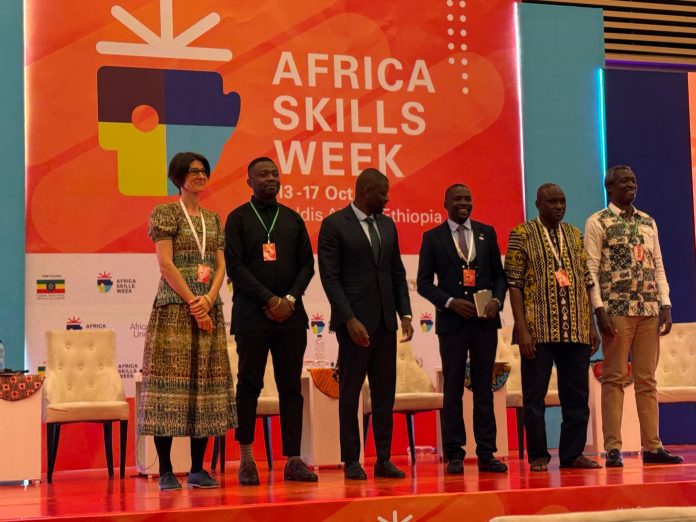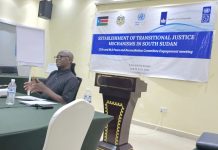The African Union, in collaboration with the Federal Democratic Republic of Ethiopia, successfully hosted the Second Edition of Africa Skills Week (ASW 2025) from October 13–17 at the African Union Headquarters. Gathering more than 850 participants from across the continent and beyond, the event centered on the theme: “Powering Africa’s Industrial Future: Skills for Innovation, Growth and Sustainability.”
The week-long event brought together government officials, industry leaders, youth and women innovators, education experts, and civil society organizations from all 55 African Union Member States, as well as regional and international partners. The dialogue focused on accelerating Africa’s transformation through education and training systems that meet the demands of the Fourth Industrial Revolution and emerging green, blue, and orange economies.
A major highlight was the official launch of the Continental Technical and Vocational Education and Training (TVET) Strategy 2025–2034—a flagship framework supporting the skills revolution under Agenda 2063: The Africa We Want. The strategy aims to align national policies with continental goals, ensuring Africa’s workforce is prepared for rapid technological change and sustainable economic growth.
Throughout the week, participants engaged in high-level ministerial dialogues, parliamentary sessions, industry forums, exhibitions, and a Youth Summit. These sessions underscored the critical need for policy coherence, innovative financing, and stronger collaboration between governments, industry, and education providers. The Youth Summit culminated in a Youth Declaration on Skills for Industrialisation, capturing the aspirations and policy priorities of young Africans as co-creators of the continent’s future.
Key commitments from the event include:
- Member States aligning their TVET and skills development systems with the new Continental Strategy and integrating these into national development plans.
- Pledges to ratify international conventions on the recognition of qualifications, easing mobility for skilled workers across Africa.
- Establishment of regional consultative meetings and a Monitoring and Evaluation Dashboard to track progress.
- Calls for National Skills Councils, innovative financing mechanisms, and expanded enterprise-based training.
- Emphasis on inclusion, ensuring women, rural youth, persons with disabilities, and displaced populations have equitable access to skills programs.
Industry leaders and policymakers alike highlighted the need for stronger links between training institutions and businesses, scaling up apprenticeships, and incentivizing private investment in workforce development. The event also reinforced the importance of digital transformation and youth-led innovation in shaping Africa’s industrial future.
Africa Skills Week concluded with a reaffirmation of the continent’s commitment to making Africa a global hub for innovation and skilled talent. Participants expressed deep appreciation to Ethiopia for its exemplary hospitality and leadership, and to all partners for their steadfast collaboration. The Communiqué and outcomes will be shared with African Union Policy Organs and stakeholders for further action and implementation.
Adopted in Addis Ababa at the close of Africa Skills Week 2025, the event stands as a testament to Africa’s determination to build an inclusive, innovative, and sustainable industrial future.



















